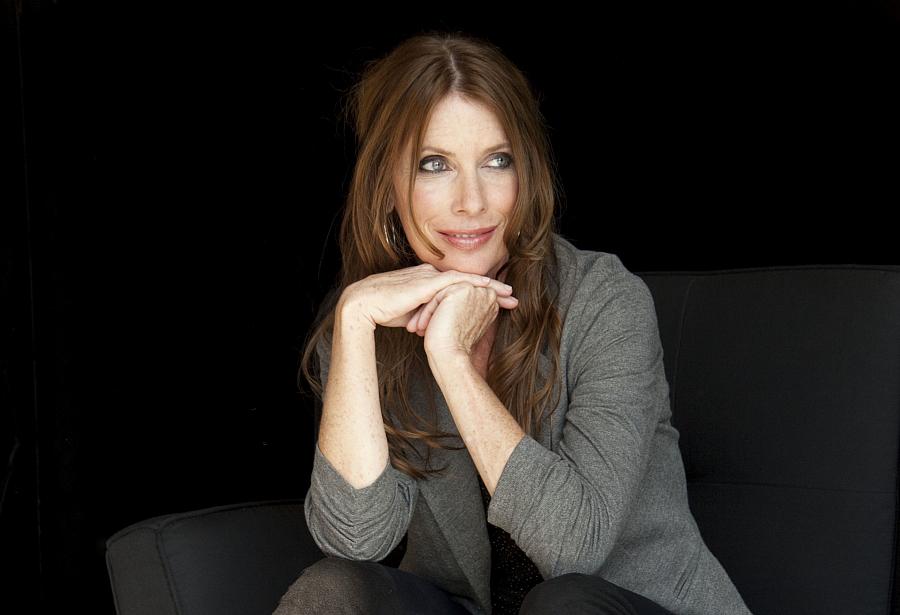Q&A with Greer Wylder: Raising Funds to Tell the Diabetes Story

Last week, I shared the first part of my interview with writer and entrepreneur Greer Wylder, the executive producer on an upcoming film, The Human Trial: The Quest to Cure Diabetes. The second part is below.
Q: I am assuming that some of the same people who read your work for the lifestyle ideas also have become active in the diabetes cause or donated money because you have made the connection. Are there any examples you want to share?
A: Well, six years ago Orange Coast Magazine asked me to be on their first OC Look advisory board, and together we chose the Juvenile Diabetes Research Foundation to be the recipient charity of the annual fundraising event. It’s a fashionable and philanthropic party that celebrates the people who define Orange County's style. My readers can find out about what diabetes-related events are happening through Greer’s OC, and many restaurants and businesses that I know through Greer’s OC donate auction items or food for events.
Q: What is the biggest misunderstanding out there about diabetes and how have you tried to correct it?
A: There’s so much confusion between the two types of diabetes, type 1 and type 2. They’re both terrible diseases, but type 1 is an autoimmune disease, and type 2 is a metabolic disorder. With type 1, patients are insulin dependent for life, their bodies no longer produce insulin and managing the disease is best described by Dan Hurley in his book Diabetes Rising: “It’s like a baby that never stops crying.” With type 2 diabetes, patients can manage their blood sugars through diet and exercise, but usually need to take insulin as well. I’m hoping that through writing, talking to people, and producing this film that type 1 diabetes will be better understood and recognized as a condition that adversely affects millions of children, young adults, and adult survivors. Ultimately, I want everyone to know about type 1 diabetes, to help put get it on a fast track to funding and research.
Q: What does the executive producer role entail? Do you have to raise funds for the film? Do you provide guidance on the way the story is being told?
A: As executive producer I am working to raise funds, and the filmmakers want my opinion about the narrative, the characters, and feedback on filming, etc. We welcome other executive producers to share the title, and help with the film. As with many independent documentaries, we are being funded by donors and investors who are deeply connected to the subject matter. And world-renowned graphic design artist, Shepard Fairey (a Type 1 diabetic), generously donated his talents to create the film poster. Proceeds from signed, limited edition posters will help support the making of the film too.So if anyone out there wants to learn more about how to get involved, please contact me.
Q: So you’re at least five people at any one time: blogger, event hostess, website publisher, executive producer, mom. Can you give me an example of a day where you were wearing multiple hats and what that schedule looked like?
A: My days are pretty chaotic, as there’s always a lot going on, but that’s exactly the way I like it. Just a few days ago, I took my boys to school, then wrote some entries for my website and sent the email newsletter out to my 10,000 subscribers. I’m a presenter at the Golden Foodie Awards on Sept. 29, so I went to rehearsals at the Fairmont Hotel. And then I went to lunch at Montage in Laguna with their marketing team to catch up on what’s new at the hotel. After lunch I guest spoke at Orange Coast College in the Fashion Program to the PR/Events class about my career path. And then I went to YAS Fitness in Costa Mesa to plan a way to help JDRF through YAS. Then I answered some emails. (I receive on average of 200 editorial pitches a day.) I did some more writing; cooked dinner for the boys, and, of course, billed clients. That was actually a fun day.
Q: What does your son Tristan think about all of this? Both your success as a writer and trendsetter and your diabetes activism?
A: Tristan is thankful that I’m involved. He’s proud of what I’m doing. Like me he’s introverted, but I make myself fight that part of my personality for this cause. He doesn’t feel comfortable talking about type 1 diabetes in the public eye, but does talk to his close friends and family about how life was carefree before type 1. And now it’s not.

